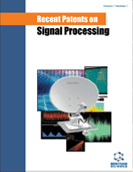Abstract
Chemometrics, a relatively young area of analytical chemistry involves extracting meaningful information from experimental data by utilizing mathematical, statistical, and computational methods with the ultimate goal of evaluating and interpreting analytical data or signals. In this article, we provide a comparison of the performance of various chemometrics techniques using data obtained from the colored complexes formed between the ligand 4-(2-pyridylazo)resorcinol (PAR) and zinc, copper, nickel, manganese, and cobalt metals. Using a reduced Box-Behnken experimental design, we developed calibration models (n=15) and compared the performance of partial least squares (PLS), principal component regression (PCR), multiple linear regression (MLR) (K-matrix), and ridge regression (RR) chemometric techniques in an independent test set (n=7). Our results show that PLS mostly outperformed the other techniques in almost all metal components in the test set. This article provides an overview of various multivariate regression techniques used in chemometrics and provides a comparison of their performance for multi-analyte detection. A discussion of some recently developed multivariate regression techniques in chemometrics as well as challenges and future directions in this field are also discussed.
Keywords: Box-Behnken design, chemometrics, multi-component detection, partial least squares, principal component regression, ridge regression.
 9
9


